Tips on removing PVC?
I've got some stubborn PVC on this coin around the date and STATES/IGWT and multiple other places on the reverse.
I've been soaking it in acetone and sporadically using a q-tip to try and remove some of the pvc, but most of it is now left in the crevaces of the design. Any tips on getting rid of this?
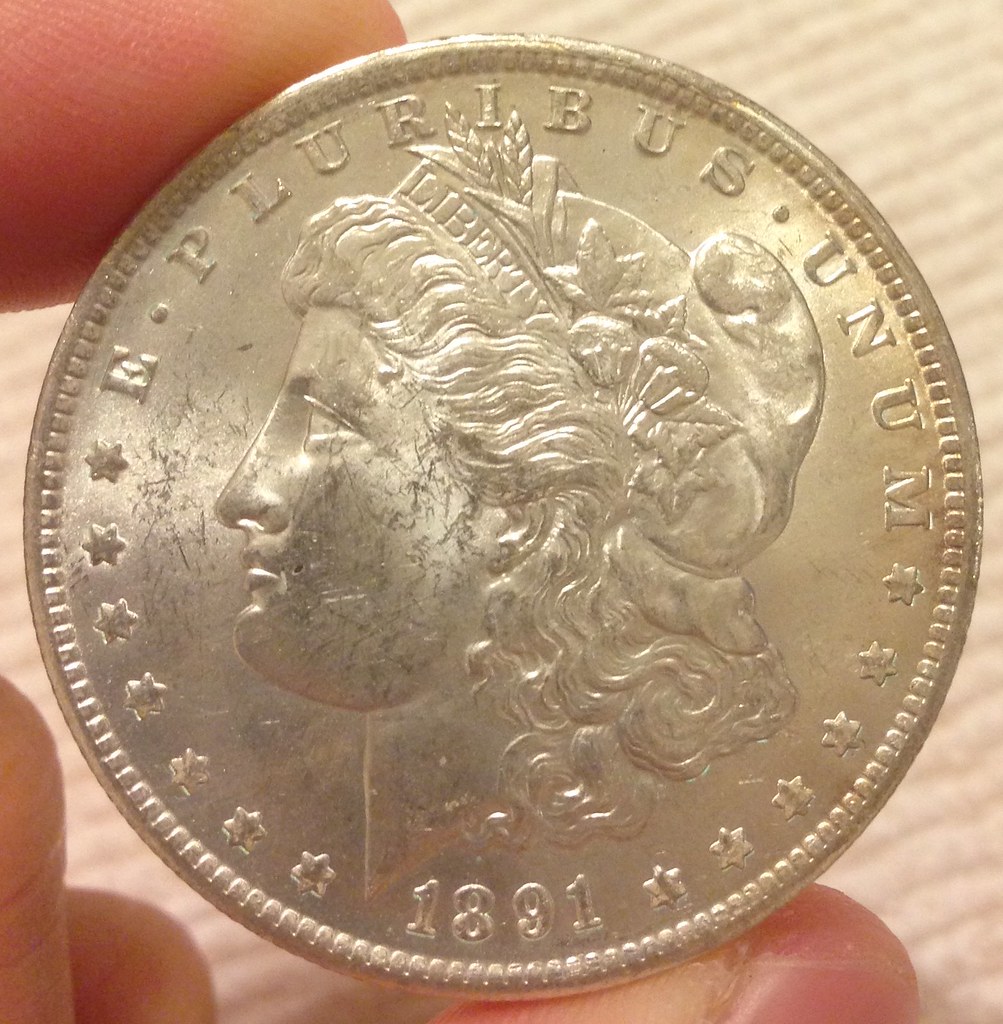
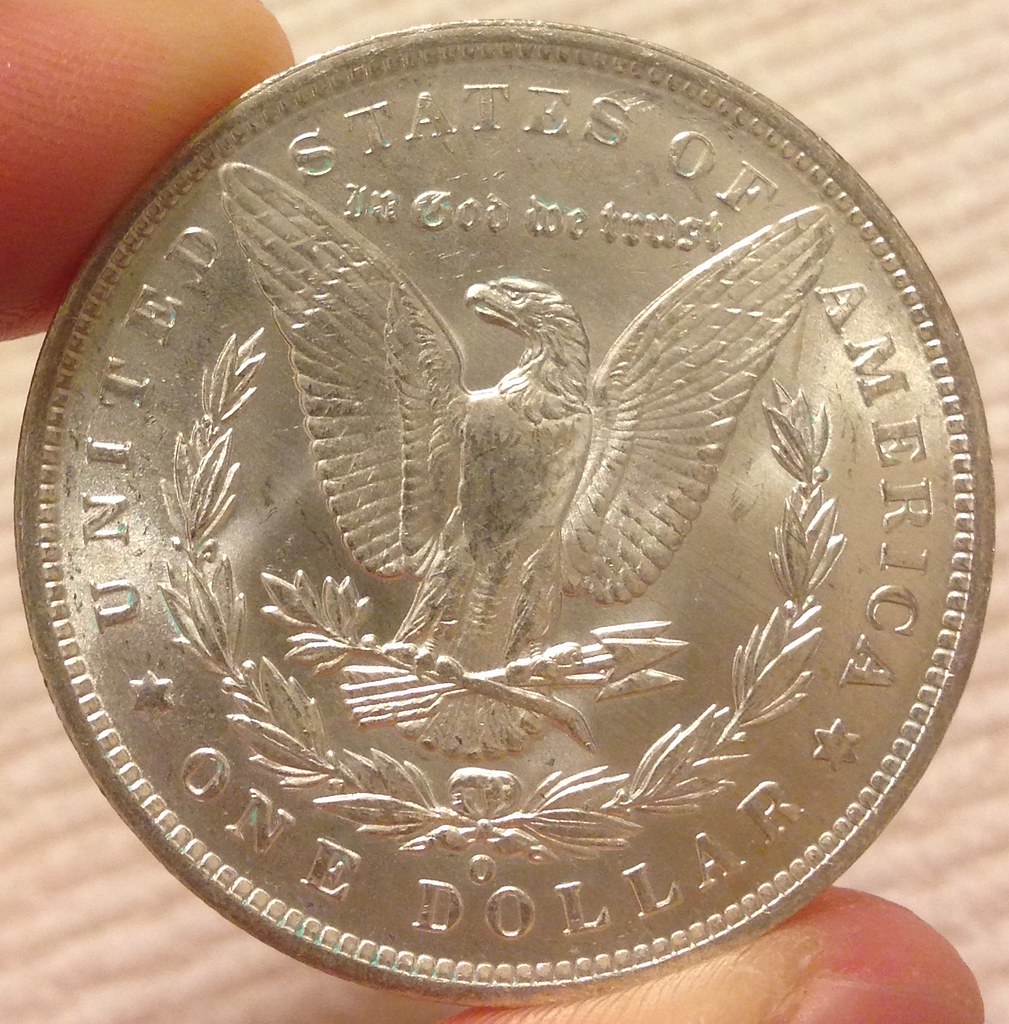
0
Comments
Ammonia diluted 1:1 with water and tamp gently with high nap white towel or Q tip. NO RUBBING! Rinse with mild soap and then lots of water. Tamp dry.
Well, just Love coins, period.
Trade Secret.
Care to share?
Acetone will take care of it.
eZest. Quick, diluted dip.
Lance.
A friend dropped by with some Morgans suffering from PVC. I felt sure we could correct it with acetone.
It just wasn't happening. Finally we chose a diluted dip and it worked wonders.
Lance.
Suspend it with a wood clothes pin in an ultra sonic cleaner filled with acetone... followed by a hot water rinse...Cheers, RickO
Very dangerous. Electricity and highly flammable products require very special handling.
@AMRC... not an issue.... Used acetone in ultrasonic cleaners for years and years in business and never a problem.......from small units to multi-gallon units..... No danger at all. Cheers, RickO
This is dangerous
RMR: 'Wer, wenn ich schriee, hörte mich denn aus der Engel Ordnungen?'
CJ: 'No one!' [Ain't no angels in the coin biz]
using acetone near anything that might produce heat or a spark scares the willies out of me.
In my experience, it does not work all the time in any quick fashion. Often it is stubborn and very slight abrasion is needed with a Q-tip used PROPERLY - roll it (Yikes!). Usually, that still will not get all the green stuck in crevices. Note the OP has soaked the coin in acetone already and the PVC remains.
Ammonia and diluted dip are harsher than needed. These will remove the PVC quickly; yet leave the coin looking "fresh dip bright." Novices love that sort of thing, in fact, if you buff the coin up a little more they'll like it even better!
Ultrasonic treatment with chemicals does the best job; however, acetone is not recommended for use in them. Thankfully @Ricko has had great success using this method. It appears he a blessed, experienced numismatist. I should hate to lose him and his knowledge. Anyway, this method is NOT recommended.
I am astonished that one well known, often used, common chemical has not been mentioned. That "Trade Secret" is MS-70. It is cheap, quick, and works wonders without leaving an unsightly coin. The rest of the secret is to neutralize the coin in hot soapy water and then finish neutralizing it to remove traces of the soap. A heated ultrasonic cleaner with four containers is used at my place of business.
Some coin folks use dish detergent "Dawn" or the like with
warm water. surfactant/ degreaser for dishes why not coins
harmless.
At the office I use a preparation of potassium hydroxide and DMSO to prepare skin scrapings for examination to look for fungal infection. The alkaline solvent dissolves the skin cells and other organics but leaves fungal cells intact. I may do anexperiment on a cheap token I have with fatal PVC .
Thanks for the conservation options; I picked up some proof silver eagles which have a little cloudiness in the fields, a quick dip in acetone, Conserv and then ammonia did not do the trick, what would be best?
A dealer told me he cracked some old holder gold coins and got some excellent results with Ms70 lots of luster. Is the new Ms70 good for that?
So far, no one I know can remove the white stains on SE. They can remove the small spots but the treatment is proprietary. I've heard that PCGS has offered a big reward a while back for the person who can do the big stains.
Mine aren't milk spots or permanent stains but a little cloudiness. I don't think you want to use an acidic silver dip on proof silver eagles.
MS-70.
PM me
So, I brought home a small bottle of the product I mentioned above. I have an old token that has sat in pvc flip for about 40 years and is speckled with pvc. I put a drop on a green area and let it sit for about an hour. The liquid is rather viscous, so it stays right where you put it. When I checked on it, the green stuff had gone into solution with the solvent, I rolled it right off with a q tip and rinsed and it was totally gone. Next I put some on a qtip and just rolled it back and forth over a green area, took the stuff right off. It is 20% KOH, 20% DMSO, and 40% "inert ingredients." due to the high viscosity I am sure it could be applied to tiny areas with a toothpick. I wonder how plain DMSO would work as a PVC remover?
Thanks for sharing your result. I've heard good and bad things about MS70 from it works wonders, is like a soap won't hurt the metal to dire and irreversible things ("like an abortion"). I haven't used it in a long time. I'm not sure what people used to dip out original gold coins removing a desirable original look that then was frowned on as an obstacle to a higher grade.
No, long day at the office and returned home rather exhausted. However there is enough green goo left that I can do that for those who think I am making this up (when I have the time). FWIW, I had no success with full strength EZest on a Qtip, or Dawn detergent. For now I am going to relax and watch the NCAA final.
Ok, so I worked on a token (not silver, some kind of white metal) that had spent 40+ years in a pvc flip. The surfaces were completely covered with a pvc haze with built up green stuff on raised areas as you will see.
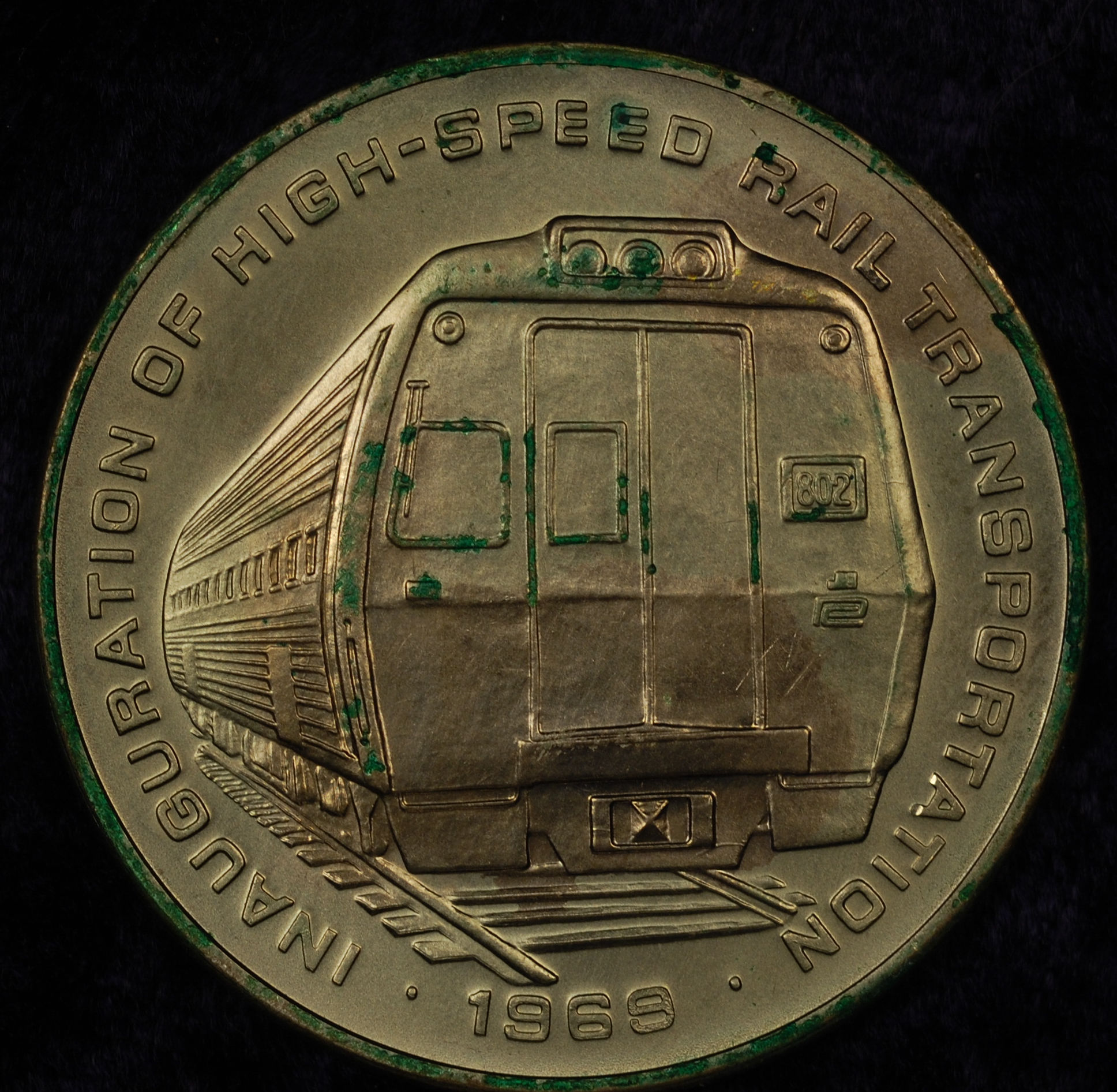
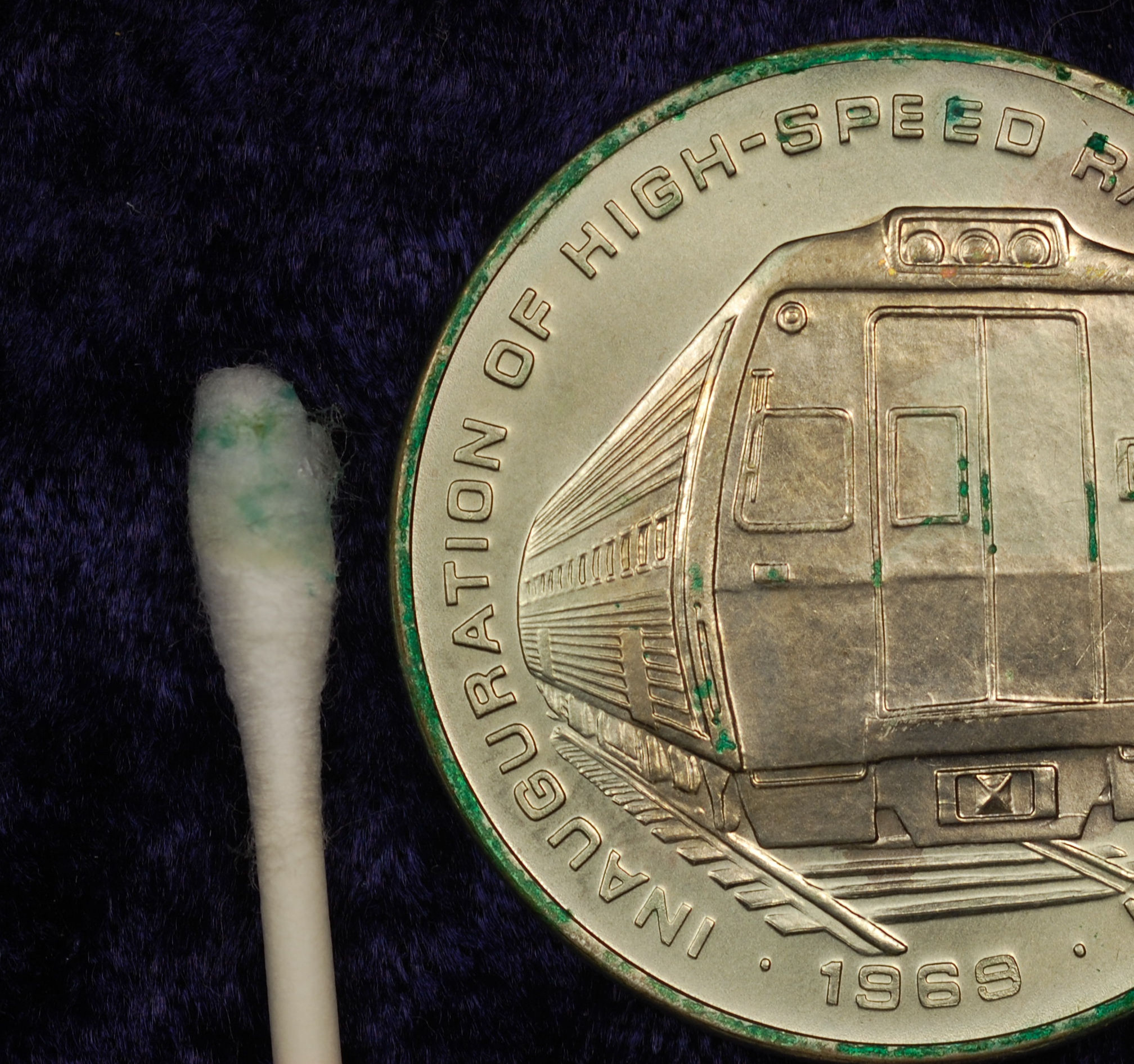
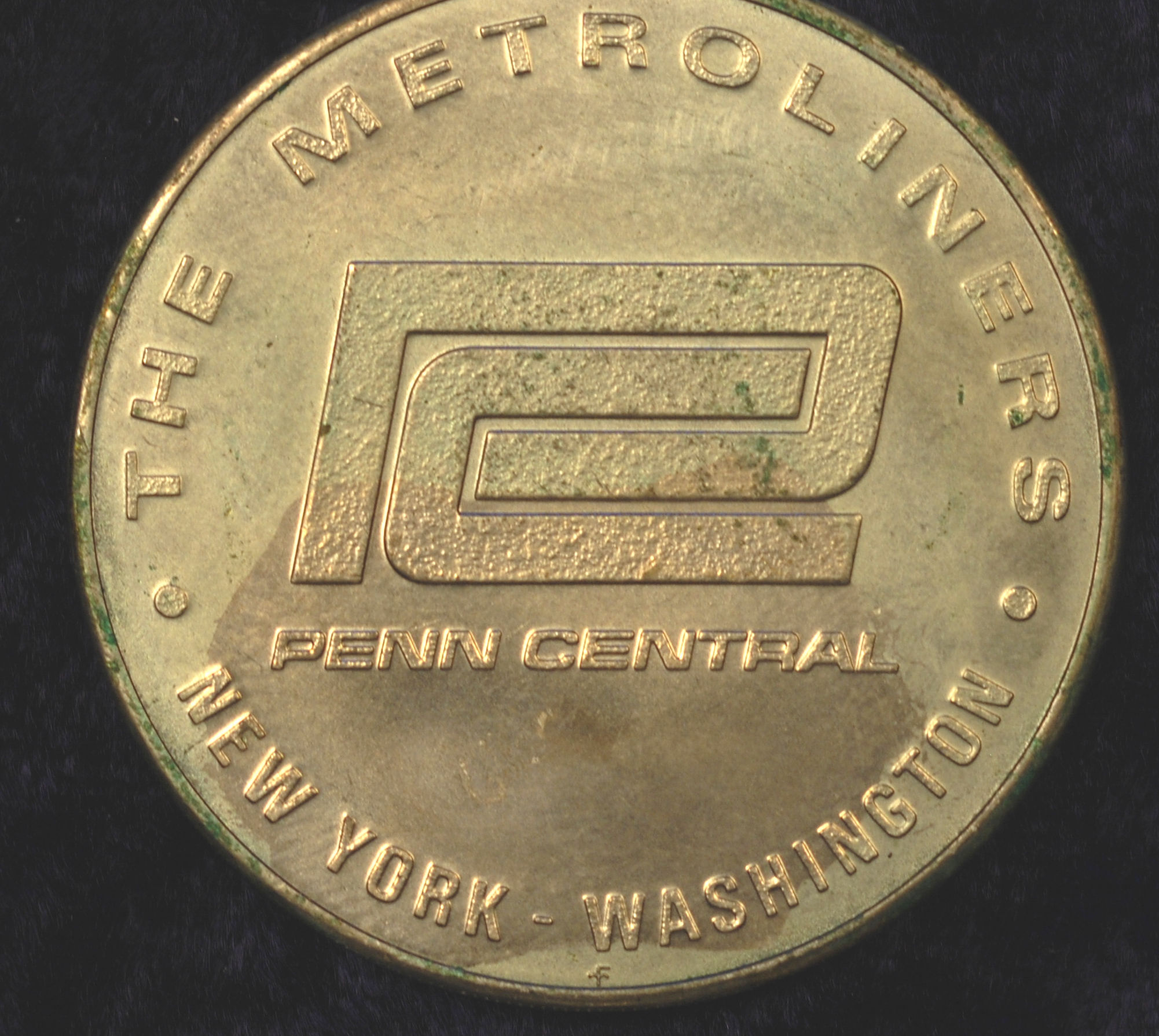
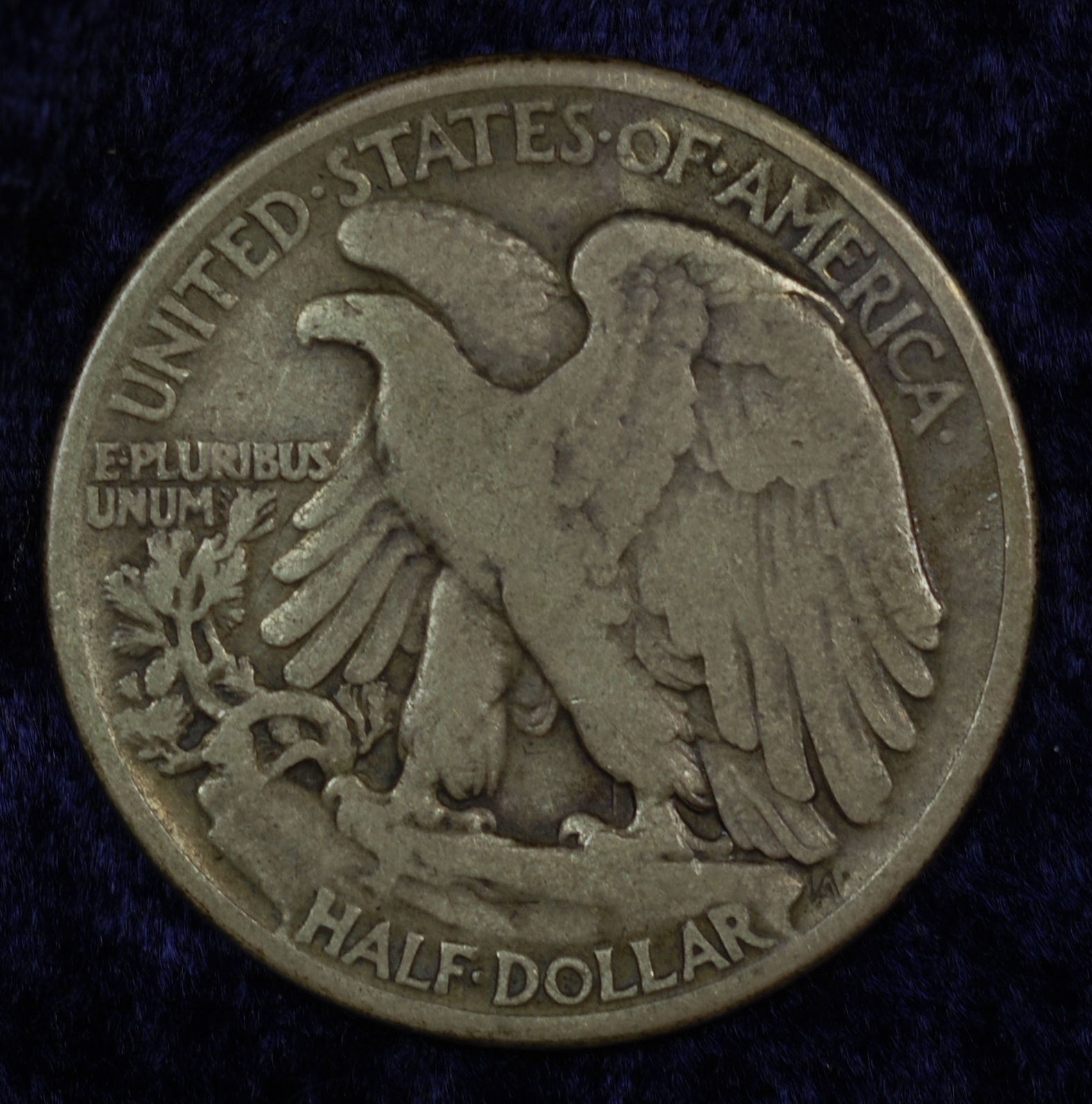
pre treatment, sorry this image is sort of dark, my camera battery was about dead.
I applied some of the KOH/DMSO solution to the left hand window area and the lights at the top of the train and let it sit for about 10-15min, and swabbed off and rinsed. the underlying metal has a sort of bronze tint to it.
Finally, I soaked a q tip in the solution and rolled it over the lower part of the rev. of the token, back and forth, for a minute or so, which removed the haze and green stuff completely. After rinsing it cartwheeled nicely (can't see that in the photo).
I was curious if this solution (KOH/DMSO) would have an effect on a patinated coin. found a nice gray walker, and applied a drop to the OF on the rev and rinsed (no rubbing) after 15 min. the solution definitely lightened the area.
I then applied a drop to the ST of STATES and rinsed after 5 min, no evident effect (did not image that).
So, the KOH/DMSO very effectively removes pvc haze and residue. The best method is probably to roll a qtip soaked in the solution over the coin, followed by a thorough rinse. Stubborn spots could probably be treated with a tiny drop on a toothpick and allowed to sit for a while. I agree that it is probably the alkaline component (KOH) that is responsible for removing the pvc, as another member posted success with MS70 which also has a high pH. DMSO may play a supporting role.
The solution is available from Acuderm, Ft. Lauderdale Fl. in a 30cc squeeze bottle. Not sure about the cost but since it is used for medical purposes it's probably astronomical (!). I think about 15-20$ IIRC.
My first step for removing PVC is still going to be a thorough acetone soak, maybe overnight, with this stuff used for any stubborn remainder.
Nice, I should have though the surface under the green would have been etched. Need to try w/o DMSO as I thought that was a product to help chems absorb thru tissues.
I finally got around to ordering a bottle of MS70.
I'll post after treatment pictures after I find time to try it on this coin.